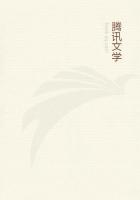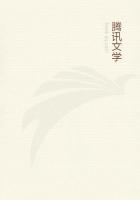Soc.Did we not begin by enquiring into the comparative eligibility of pleasure and wisdom?
Phi.Certainly.
Soc.And we maintain that they are each of them one?
Phi.True.
Soc.And the precise question to which the previous discussion desires an answer is, how they are one and also many [i.e., how they have one genus and many species], and are not at once infinite, and what number of species is to be assigned to either of them before they pass into infinity.
Pro.That is a very serious question, Philebus, to which Socrates has ingeniously brought us round, and please to consider which of us shall answer him; there may be something ridiculous in my being unable to answer, and therefore imposing the task upon you, when I have undertaken the whole charge of the argument, but if neither of us were able to answer, the result methinks would be still more ridiculous.
Let us consider, then, what we are to do:-Socrates, if I understood him rightly, is asking whether there are not kinds of pleasure, and what is the number and nature of them, and the same of wisdom.
Soc.Most true, O son of Callias; and the previous argument showed that if we are not able to tell the kinds of everything that has unity, likeness, sameness, or their opposites, none of us will be of the smallest use in any enquiry.
Pro.That seems to be very near the truth, Socrates.Happy would the wise man be if he knew all things, and the next best thing for him is that he should know himself.Why do I say so at this moment? I will tell you.You, Socrates, have granted us this opportunity of conversing with you, and are ready to assist us in determining what is the best of human goods.For when Philebus said that pleasure and delight and enjoyment and the like were the chief good, you answered-No, not those, but another class of goods; and we are constantly reminding ourselves of what you said, and very properly, in order that we may not forget to examine and compare the two.And these goods, which in your opinion are to be designated as superior to pleasure, and are the true objects of pursuit, are mind and knowledge and understanding and art and the like.There was a dispute about which were the best, and we playfully threatened that you should not be allowed to go home until the question was settled;and you agreed, and placed yourself at our disposal.And now, as children say, what has been fairly given cannot be taken back; cease then to fight against us in this way.
Soc.In what way?
Phi.Do not perplex us, and keep asking questions of us to which we have not as yet any sufficient answer to give; let us not imagine that a general puzzling of us all is to be the end of our discussion, but if we are unable to answer, do you answer, as you have promised.Consider, then, whether you will divide pleasure and knowledge according to their kinds; or you may let the matter drop, if you are able and willing to find some other mode of clearing up our controversy.
Soc.If you say that, I have nothing to apprehend, for the words "if you are willing" dispel all my fear; and, moreover, a god seems to have recalled something to my mind.
Phi.What is that?
Soc.I remember to have heard long ago certain discussions about pleasure and wisdom, whether awake or in a dream I cannot tell; they were to the effect that neither the one nor the other of them was the good, but some third thing, which was different from them, and better than either.If this be clearly established, then pleasure will lose the victory, for the good will cease to be identified with her:-Am I not right?
Pro.Yes.
Soc.And there will cease to be any need of distinguishing the kinds of pleasures, as I am inclined to think, but this will appear more clearly as we proceed.
Pro.Capital, Socrates; pray go on as you propose.
Soc.But, let us first agree on some little points.
Pro.What are they?
Soc.Is the good perfect or imperfect?
Pro.The most perfect, Socrates, of all things.
Soc.And is the good sufficient?
Pro.Yes, certainly, and in a degree surpassing all other things.
Soc.And no one can deny that all percipient beings desire and hunt after good, and are eager to catch and have the good about them, and care not for the attainment of anything which its not accompanied by good.
Pro.That is undeniable.
Soc.Now let us part off the life of pleasure from the life of wisdom, and pass them in review.
Pro.How do you mean?
Soc.Let there be no wisdom in the life of pleasure, nor any pleasure in the life of wisdom, for if either of them is the chief good, it cannot be supposed to want anything, but if either is shown to want anything, then it cannot really be the chief good.
Pro.Impossible.
Soc.And will you help us to test these two lives?
Pro.Certainly.
Soc.Then answer.
Pro.Ask.
Soc.Would you choose, Protarchus, to live all your life long in the enjoyment of the greatest pleasures?
Pro.Certainly I should.
Soc.Would you consider that there was still anything wanting to you if you had perfect pleasure?
Pro.Certainly not.
Soc.Reflect; would you not want wisdom and intelligence and forethought, and similar qualities? would you not at any rate want sight?
Pro.Why should I? Having pleasure I should have all things.
Soc.Living thus, you would always throughout your life enjoy the greatest pleasures?
Pro.I should.
Soc.But if you had neither mind, nor memory, nor knowledge, nor true opinion, you would in the first place be utterly ignorant of whether you were pleased or not, because you would be entirely devoid of intelligence.
Pro.Certainly.
Soc.And similarly, if you had no memory you would not recollect that you had ever been pleased, nor would the slightest recollection of the pleasure which you feel at any moment remain with you; and if you had no true opinion you would not think that you were pleased when you were; and if you had no power of calculation you would not be able to calculate on future pleasure, and your life would be the life, not of a man, but of an oyster or pulmo marinus.Could this be otherwise?
Pro.No.
Soc.But is such a life eligible?















